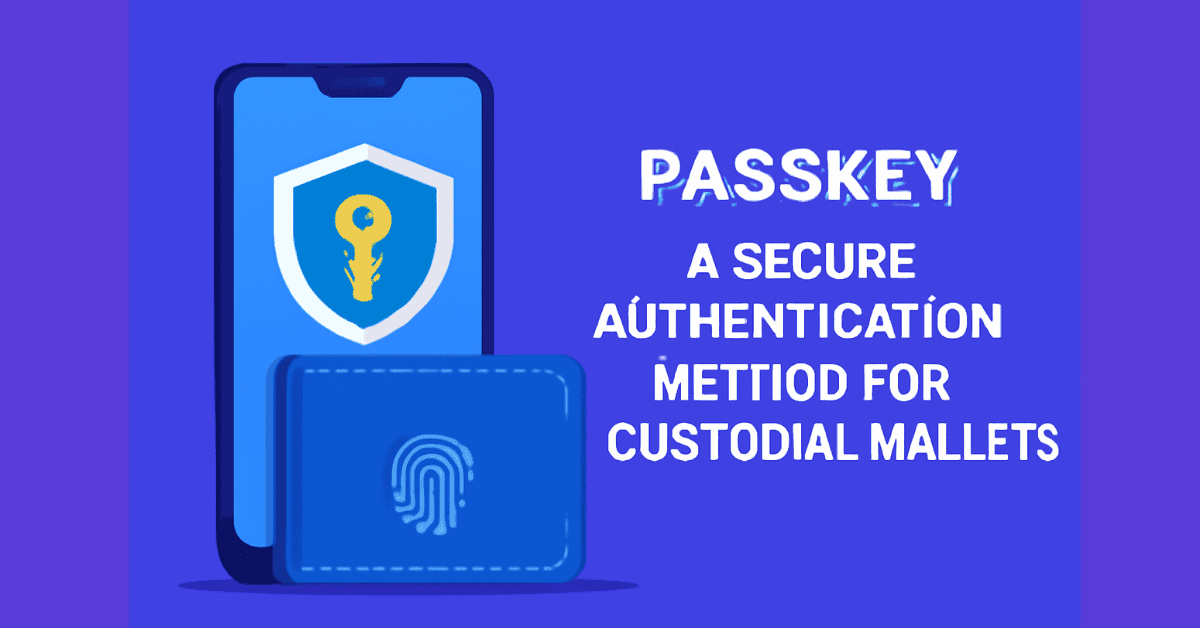
Passkey: Secure Authentication for Custodial Wallets
1. What is Passkey in a Custodial Wallet?
A Custodial Wallet is a type of wallet where the user's private key is managed by a third party, such as cryptocurrency exchanges. This means that users do not have direct control over their private key, which is stored and secured on the platform's system.
In this context, a passkey is not a new type of wallet, but rather a secure authentication method. Instead of using traditional passwords, passkey allows users to log in or confirm transactions using modern security methods such as biometrics or PIN codes.
2. How Does Passkey Work in a Custodial Wallet?
Passkey helps users perform actions such as:
-Password-Free Login: Users can log in to their wallet using passkey instead of remembering a password, reducing the risk of phishing or brute-force attacks.
-Biometric or PIN Authentication: Before accessing their account or performing transactions, users must authenticate their identity using a fingerprint, face recognition, or PIN code, ensuring maximum security.
-Enhanced Security and User Experience: Passkey replaces traditional passwords and strengthens security through two-factor authentication (2FA) with a smoother user experience.
3. Examples of Passkey Usage on Major Platforms
Several major platforms have integrated passkey into their Custodial wallets, including:
-Binance: This exchange has supported passkey since March 2023, allowing users to log in -using biometrics or a PIN instead of a traditional password.
-Coinbase and Bybit: These platforms also use passkey to enhance security, replacing traditional methods like passwords or two-factor authentication.
Although passkey is used on these platforms, they remain custodial wallets, meaning the exchange or wallet service holds and secures the user's private key.